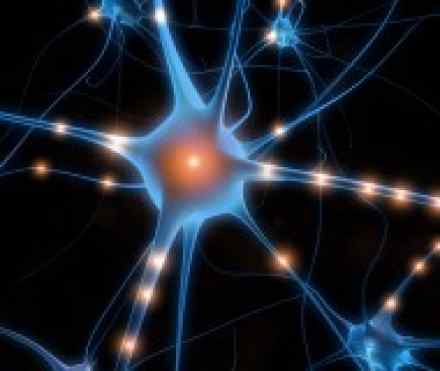
What is it?
- Huntington's disease is a progressive, degenerative disease that causes certain nerve cells in your brain to waste away. As a result, you may experience uncontrolled movements, emotional disturbances and mental deterioration.
- Huntington's disease is an inherited disease. Signs and symptoms usually develop in middle age. Younger people with Huntington's disease often have a more severe case, and their symptoms may progress more quickly. Rarely, children may develop Huntington's disease.
- Medications are available to help manage the signs and symptoms of Huntington's disease, but treatments can't prevent the physical and mental decline associated with the condition.
Symptoms
The signs and symptoms of Huntington's disease can vary significantly from person to person. Huntington's disease usually develops slowly, and the severity of signs and symptoms is related to the degree of nerve cell loss.
Early signs and symptoms of Huntington's disease often include:
- Personality changes, such as irritability, anger, depression or a loss of interest
- Decreased cognitive abilities, such as difficulty making decisions, learning new information, answering questions and remembering important information
- Mild balance problems
- Clumsiness
- Involuntary facial movements, such as grimacing
- Your family and friends may notice these changes before you become aware of them.
Later signs and symptoms of Huntington's disease can include:
- Sudden jerky, involuntary movements (chorea) throughout your body
- Severe problems with balance and coordination
- Jerky, rapid eye movements
- Hesitant, halting or slurred speech
- Swallowing problems
- Dementia
Young people who develop Huntington's disease may have signs and symptoms that mimic Parkinson's disease:
- Muscle rigidity
- Tremors
- Slow movements
- Seizures may also occur in those with early-onset Huntington's disease.
Causes
Huntington's disease is an inherited condition caused by a single abnormal gene. Doctors refer to the illness as an autosomal dominant disorder because only one copy of the defective gene, inherited from either parent, is necessary to produce the disease. If one parent has the single faulty gene, the chance that an offspring will have the defect is 50 percent. Because signs and symptoms typically first appear in middle age, some parents may not know they carry the gene until they've already had children and possibly passed on the trait.
If your child doesn't inherit the faulty gene, he or she won't develop Huntington's disease and can't pass it on to the next generation. Everyone who has the gene eventually develops Huntington's disease, if he or she lives long enough.
In 2006, researchers discovered that the protein expressed by the Huntington's gene interacts with another protein to disturb the way that cholesterol accumulates in the brain. Cholesterol is essential for healthy brain cells and the network among those brain cells — but the cholesterol needs to be in proper levels and in the proper locations. When the network of brain cells is disrupted, motor skills, cognitive skills and speech can be affected. If scientists can figure out a way to disrupt this interaction between the proteins, they may eventually be able to develop a targeted drug therapy.
Risk factors
If one of your parents has Huntington's disease, you have a 50 percent chance of developing the disease. In rare cases, you may develop Huntington's disease without having a family history of the condition. Such an occurrence may be the result of a genetic mutation that happened during your father's sperm development.
Complications
After onset of the disease, signs and symptoms continue until death. Though the signs and symptoms vary from person to person, vital functions, such as swallowing, eating, speaking and walking, usually degenerate over time. Depression is common in Huntington's disease, and some people are at risk of suicide. However, death generally occurs as a result of complications of the disease, such as a fall or an infection like pneumonia.
Diagnosis
During an initial evaluation, your doctor will:
- Perform a physical exam
- Ask about your medical history and your family medical history
- Ask about any recent emotional or intellectual changes
If your doctor suspects Huntington's disease, you'll likely:
- Undergo a psychiatric evaluation
- Meet with a genetic counselor to discuss the possibility of having a blood test to determine whether you have the defective gene
If you know that one of your parents had Huntington's, ask your doctor about genetic testing. Genetic testing is generally done in a setting where pre-test counseling and post-test support are available along with testing.
Your doctor may also suggest:
- Computerized tomography (CT)
- Magnetic resonance imaging (MRI)
These imaging tests can help your doctor identify any changes to your brain's structure and rule out other disorders.
References:
http://www.ninds.nih.gov/disorders/huntington/huntington.htm
https://en.wikipedia.org/wiki/Huntington%27s_disease
http://www.huntingtons.ie/content/information-huntingtons-disease
http://www.huntingtons.ie
https://ghr.nlm.nih.gov/condition/huntington-disease

